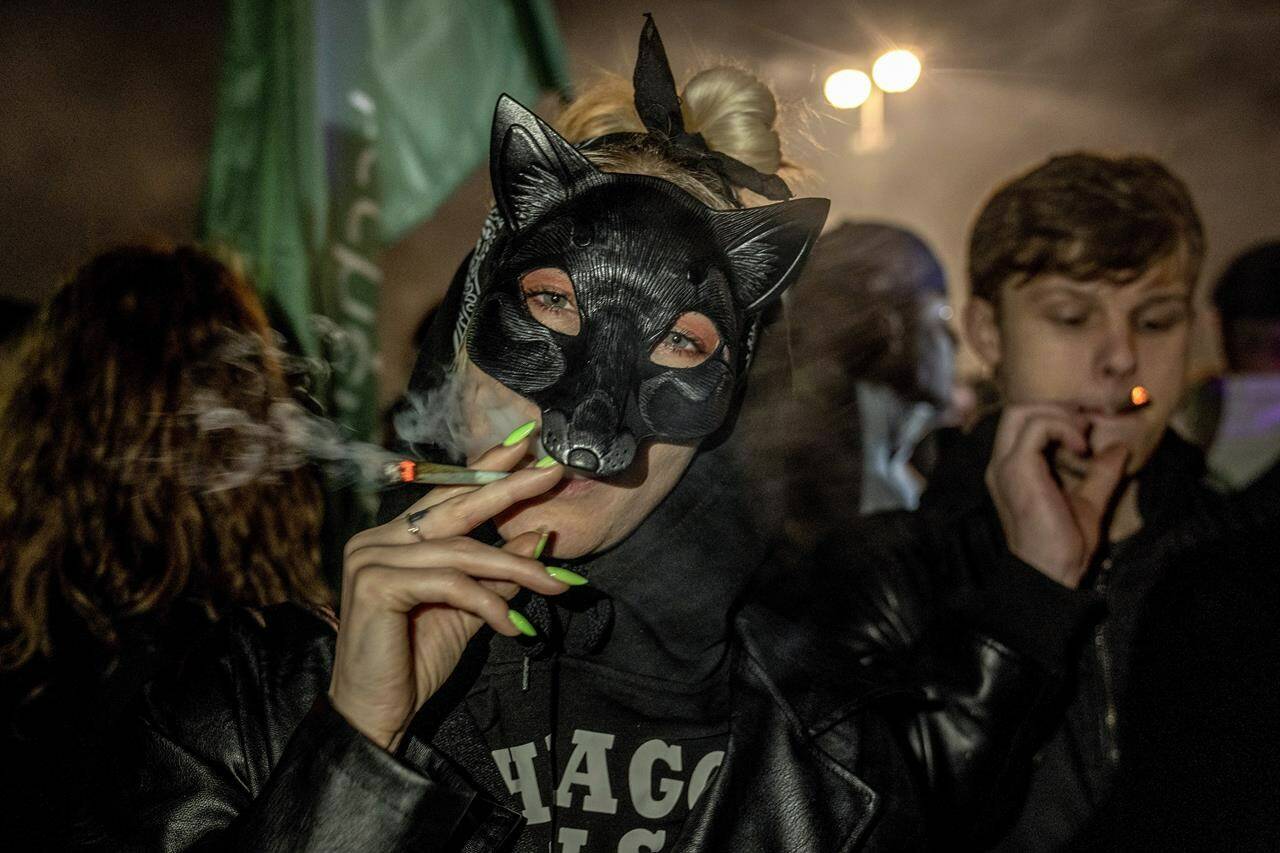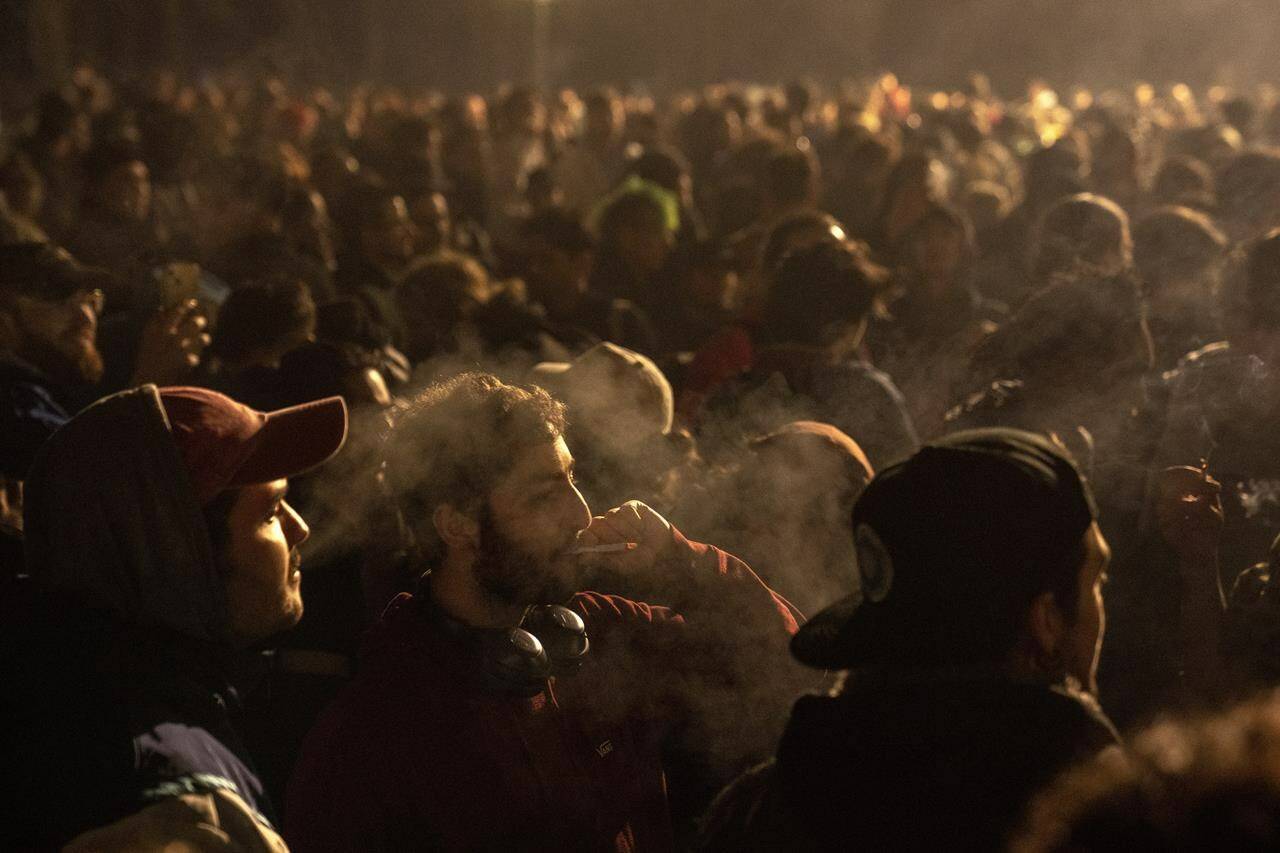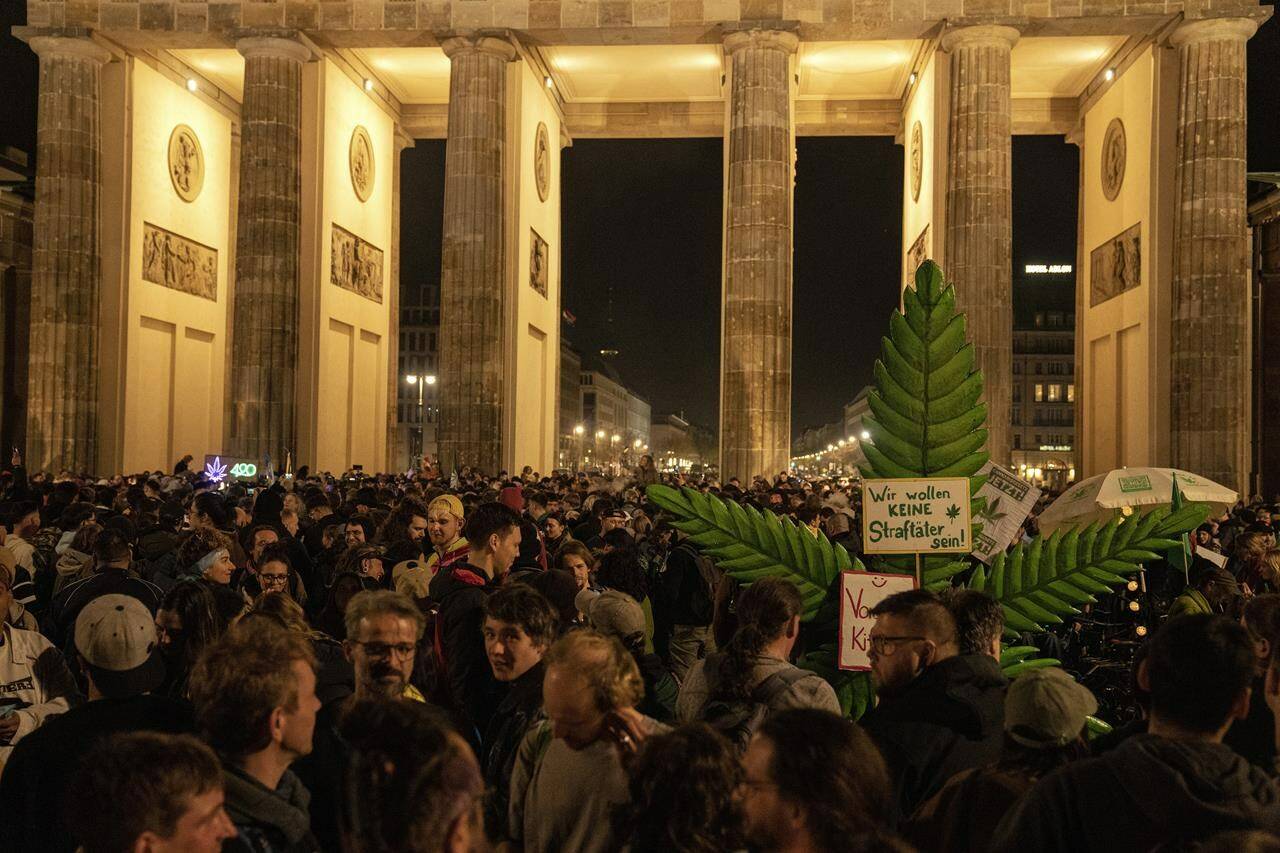Marijuana campaigners in Germany lit celebratory joints as the country legalized possession of small amounts of cannabis for recreational use over objections from doctors and police.
The German Cannabis Association, which campaigned for the new law, staged a “smoke-in” at Berlin’s landmark Brandenburg Gate when the law took effect at midnight. Other public consumption events were scheduled throughout the country, including one in front of the Cologne cathedral and others in Hamburg, Regensburg and Dortmund.
Germany becomes the third European Union country to legalize cannabis for personal use after Malta and Luxembourg. The government argued that legalization would undermine criminal trade in the drug, guard against harmful impurities and free police to pursue more serious crimes while providing for protections against use by under-18s.
The new law legalizes possession by adults of up to 25 grams (nearly 1 ounce) of marijuana for recreational purposes and allows individuals to grow up to three plants on their own. Use is prohibited within 100 meters (109 yards) of the entrance to a playground or school. That part of the legislation took effect Monday.
German residents age 18 and older will be allowed to join nonprofit “cannabis clubs” with a maximum 500 members each starting July 1. Individuals will be allowed to buy up to 25 grams per day, or a maximum 50 grams per month — a figure limited to 30 grams for people under age 21. Membership in multiple clubs won’t be allowed.
The clubs’ costs will be covered by membership fees, which are to be staggered according to how much marijuana members use.
The legislation also calls for an amnesty under which sentences for cannabis-related offenses that will no longer be illegal are to be reviewed and in many cases reversed. Regional authorities worry that the judicial system will be overburdened by thousands of cases.
READ MORE: Nevada issues first license to recreational cannabis lounge in Las Vegas
Over the past 20 years, the general trend has been for European Union member countries to reduce cannabis penalties in various ways, according to the European Monitoring Centre for Drugs and Drug Addiction.
Those could include making possession a civil offene or diverting offenders to treatment instead of the criminal justice system, or less strict enforcement. In the Netherlands, cannabis remains illegal but sale of small amounts in so-called coffee shops is tolerated by the public prosecution service. A number of countries in Europe permit medical cannabis under differing sets of rules.
The law was passed by the current coalition of Chancellor Olaf Scholz’ Social Democrats, the Greens and the pro-business Free Democrats, against opposition from some of Germany’s federal states and the centre-right Christian Democrats.
Christian Democratic leader Friedrich Merz has vowed that his party will reverse the legislation if it wins national elections expected in the fall of 2025. Any likely new government coalition, however, would include one of the parties that supported the law.
Leading garden stores surveyed by the dpa news agency indicated they would not be adding cannabis plants to their horticultural offerings. The German Medical Association opposed the law, saying it could have “grave consequences” for the “developmental and life prospects of young people in our country.” So did the union representing German police officers, which called it “the wrong signal.”
– David Mchugh, The Associated Press
To get the week’s latest must-read stories from the cannabis world direct to your inbox, sign up for our weekly newsletter at canadianevergreen.com. You can also follow us on Facebook, Instagram and Twitter.



